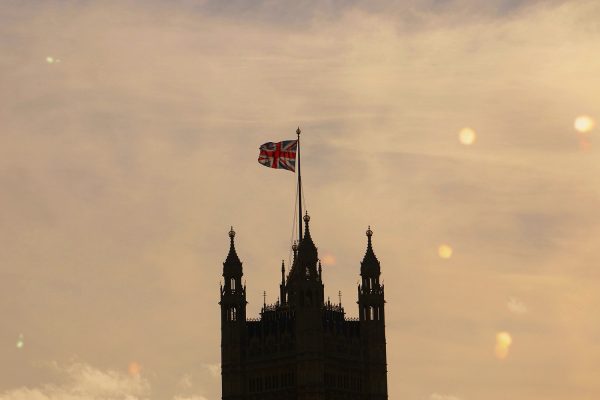
Britain’s Conservatives won the election this month, but it may come at the expense of the union of the United Kingdom their party — which has “Unionist” in its name — is sworn to protect.
Conservatives neglected their responsibility to the union by calling the EU referendum in the first place. David Cameron hoped to resolve an intraparty dispute over Europe. He ended up dividing the four nations of the UK. Majorities in Northern Ireland and Scotland voted to remain in the EU. They were outvoted by majorities in England and Wales.
Rather than attempt a “soft” Brexit that might appease Scots and prevent either a border between Northern Ireland and the Republic of Ireland or regulatory divergence between Northern Ireland and Great Britain, Cameron’s successors Theresa May and Boris Johnson negotiated a hard break: leaving the European customs union and single market in order to regain full control over immigration and economic policy.
The price could be Scottish independence and Irish unification, making Britain smaller than it has been in three centuries — and making a mockery of Brexiteers’ aspiration to lead a “Global Britain” outside the EU.
Scotland
Scotland’s National Party reasserted its dominance north of Hadrian’s Wall in the election, winning 48 of the region’s 59 seats in Westminster.
It has close to an absolute majority in the devolved Scottish Parliament and is polling at 40-45 percent support for the next regional election, due in 2021.
First Minister and Scottish National Party leader Nicola Sturgeon insists on a second independence referendum, arguing Scotland cannot be “imprisoned in the UK.”
No poll conducted since the EU referendum has found a majority in favor of leaving the UK. But that could change (PDF) as a result of Brexit.
Forced to choose between England the EU, a majority of Scots may prefer the second, even if their immediate economic interests argue for a continued union with the first.
Northern Ireland
Surveys in Northern Ireland have found support for leaving the UK. A majority of the people in Ireland would welcome unification.
How Brexit pans out makes a difference, though. May, who needed the support of the hardline Democratic Unionist Party (DUP) of Northern Ireland to govern, negotiated a UK-wide customs union with the EU to avoid the need for checks on goods traveling between the two islands. Johnson reduced that customs union to Northern Ireland, still avoiding the need for a hard border in Ulster but creating the need for a regulatory border in the Irish Sea.
Unionists in Northern Ireland hate this, as it separates the province from Great Britain. But Irish nationalists and non-sectarian moderates in the middle prefer a close relationship with Ireland. They do more business with the republic than with England, Scotland and Wales.
Within Northern Ireland, Catholics and Protestants still live apart. Sadhbh Walshe reports for The New York Review of Books that people from different communities live parallel lives, “following their own sports, their own religion and their own politics.”
Only 7 percent of children attend integrated schools. Miles of so-called peace walls still divide cities like Belfast and Derry.
May’s deal with the DUP didn’t help. It upset the balance of power in Northern Ireland, causing unionists and nationalists to fall out. Both are required to form a devolved government under the terms of the Good Friday Agreement.
The election did bring some good news. Both the DUP and Sinn Féin, the hardline Irish nationalist party, lost support in favor of the cross-community Alliance and the soft Irish nationalist Social Democratic and Labour Party. The DUP and Sinn Féin, still the largest parties, now have a renewed sense of urgency to restore power-sharing.
Sinn Féin doesn’t take its seats in the House of Commons, so a majority of Northern Irish lawmakers will still be unionist. But a majority of voters backed candidates who oppose Brexit.
Electoral advantage
Presiding over the dissolution of the United Kingdom would be an embarrassment for Johnson after winning the biggest parliamentary majority for the Conservatives since Margaret Thatcher.
But it could benefit him politically.
Conservatives have long held the affluent shires of southern and central England. In the election, they conquered the Labour strongholds of the Midlands and North.
Labour is now almost entirely an urban party, which, under the British electoral system, means it cannot win a majority in Parliament. Without Scotland’s 59 seats, a progressive majority would be almost impossible.
